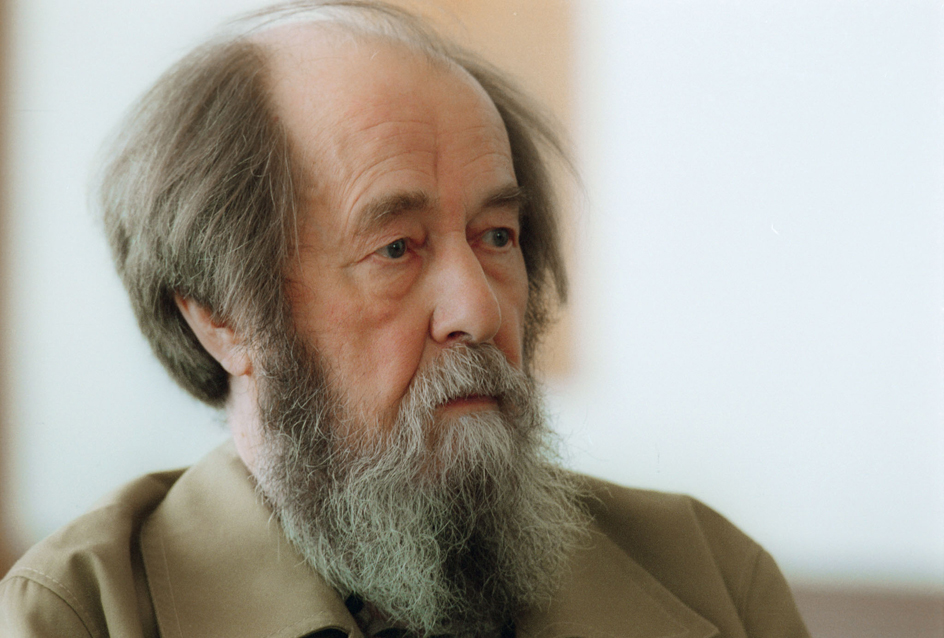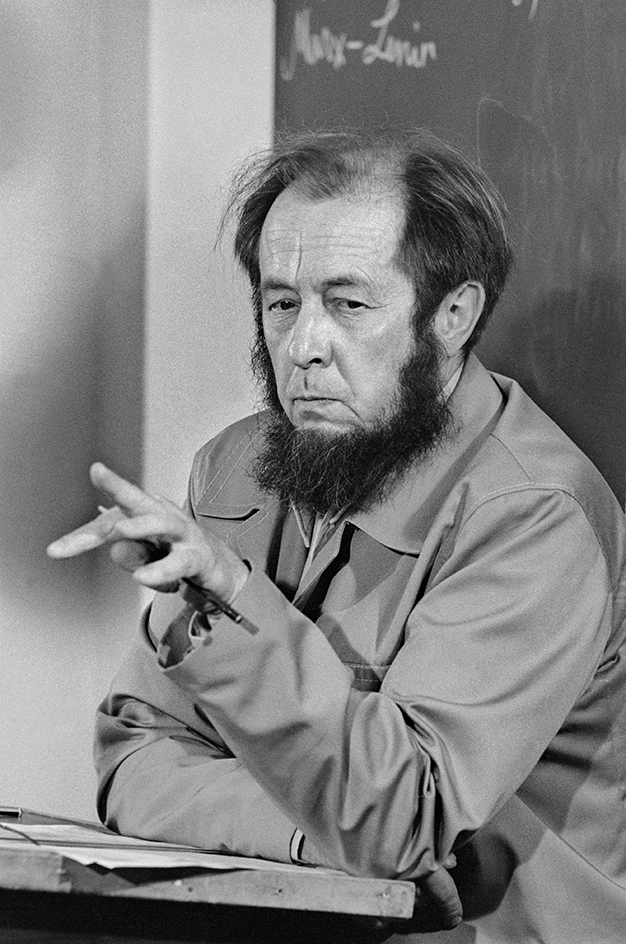Solzhenitsyn, << `sawl` zhuh NEET sihn, >> Alexander (1918-2008), was a Russian novelist. He was awarded the 1970 Nobel Prize in literature.

Alexander Isaevich Solzhenitsyn was born in Kislovodsk on Dec. 11, 1918. He served four years in the Soviet Army during World War II (1939-1945). Russia was part of the Soviet Union from 1922 to 1991. In 1945, while Solzhenitsyn was still in the army, he was falsely accused of a political crime. He spent eight years in labor camps and three years in exile.
Solzhenitsyn’s novels reflect his prison and war experiences. One Day in the Life of Ivan Denisovich (1962) and The First Circle (1964) have prison settings. Cancer Ward (1966) takes place in a hospital. Using the prison and the hospital as symbols of society, the author dramatized the contrast between revolutionary ideals and harsh political reality. His heroes express the triumph of dignity over tyranny and suffering.

Solzhenitsyn planned a long four-volume historical novel called The Red Wheel. The first volume, August 1914 (1971), describes the early days of World War I in 1914. A revised and expanded version of the novel published in 1989 included emphasis on the historical meaning of the February Revolution of 1917. The second volume, November 1916, was published in 1993.
Throughout the 1960’s and early 1970’s, the Soviet government accused Solzhenitsyn of slandering his country in his writings. He did not travel to Stockholm to accept the Nobel Prize because he feared he would not be allowed to return to Russia. Solzhenitsyn finally officially accepted the prize in 1974. The government intensified its attacks on the author following the publication in Paris of volume one of Solzhenitsyn’s three-volume The Gulag Archipelago, 1918-1956 in 1973. The book is a study of the Soviet prison camp system. Volume two of The Gulag Archipelago was published in 1975, and volume three in 1976. In 1974, the government revoked Solzhenitsyn’s citizenship and deported him. He lived in Switzerland for about two years and then settled in the United States in 1976. Solzhenitsyn described his final years in the Soviet Union in the autobiographies Invisible Allies (1971) and The Oak and the Calf (1975). In 1990, the Soviet government restored the writer’s citizenship. In 1994, he returned to Russia to live. He died on Aug. 3, 2008.
